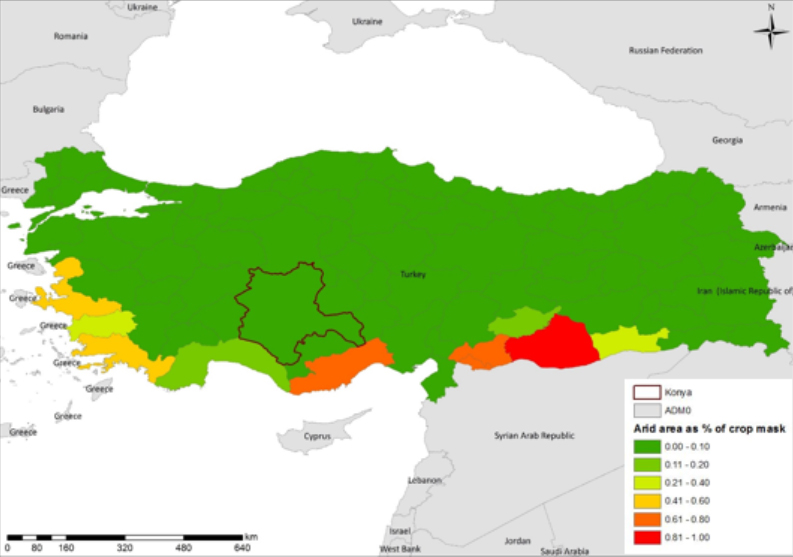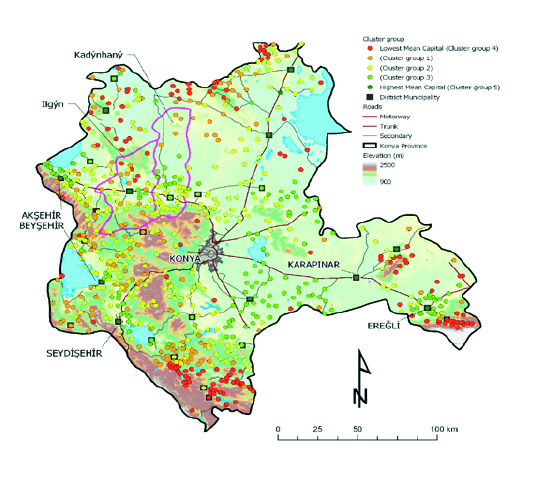Agricultural Implications for Ecosystem Based Adaptation to Climate Change in Steppe Ecosystems

The overall project GCP/TUR/063/EC aims to increase the resilience of societies and steppe ecosystems to the impacts of climate change. The first objective is to increase national capacity and awareness in preparation for the adoption of medium and long-term climate change ecosystem based adaptation plans. The plans, focusing primarily on Anatolian steppe ecosystems will be gradually aligned with EU climate policy and legislation.
FAO Subregional Office for Central Asia (SEC) has been implementing the project in close cooperation with the beneficiary institution, the Republic of Turkey’s Ministry of Food, Agriculture and Livestock (MFAL).
The FAO-Geospatial Unit is mainly supporting Work Package 1, which focuses on generating the background information to implement policies and strategies. The project uses a multi-scale approach to assess different outputs at:
- country level
- steppe level (within the whole country)
- Konya province level
- pilot district level (Ilgin and Kadinhani).
The main outputs for the Work Package 1 are:
- the development of a map of Anatolian steppe and steppe ecosystems;
- Turkey's land resource database;
- the etablishment of a current and historical spatial database (NAEZ);
- Agro-climatic analysis (NAEZ);
- Agro-ecological assessment of crop suitability and productivity;
- Agro-economic crop assessment;
- the estimation of climate change impacts;
- mapping of ecosystem services;
- a detailed Land Cover Map;
- the development and analysis of adaptation strategies;
- a socio-agricultural vulnerability analysis of changes in ecosystem service provision.



